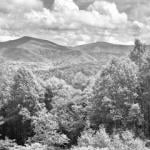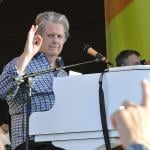Marcus Borg was a rare and beautiful paradox in a time of great social, political and religious polarities. He was a theological mystic–and of these there are far too few. I came to awareness of his body of work and this quality of spirit very late in the game. I am not much of a theologian and only slightly more coordinated in my clumsy crooked mysticism.
For me he was inspirational and aspirational in his beautifully paradoxical way. I found his voice not through the great body of literature that made up his life’s work, but through the medium of Patheos, when a particularly profound post of his rose into the social media ether and brought some great contradiction amongst others with virtual pulpits.
The post itself and its detractors are really not, ultimately, the consequential part of this story. For me the value was the fact that this new media medium of oration brought to my door something which, to that point, was undiscovered. It gave me a view of a great jewel–theology that could be both mystic and critical, which could explore the questions of the cosmos without needing to assert certitude.
His words gave me great hope in a time in which I worried that the immediacy of one-click sermons might dilute or detract from the ability to sit thoughtfully with ideas long enough for them to percolate into wisdom. I worried, and still worry, about this drawback of virtual theology, activism, and critique, as much for myself [if not more] than for anyone else.
A Rare Gift
In an era of one-click theology when most of us who write into the virtual void, if we are honest, have probably hit post at least one time in our virtual career before our thoughts became more than platitudes, there is something to be said for the wisdom of aged ideas. There is something even greater to be said about wisdom that can dwell in the space of what the great mystics call “unknowing.”
To unknow means to move beyond certitudes and platitudes and into a greater truth. Perhaps, it is what one Old Testament professor I had would call, “truth that is truer than fact.” Into that space walk the master teachers of all world traditions. They can know enough to unknow. They can know enough to know, as contemporary punk lyricists “Operation Ivy” would say [despite the double negative], “all I know is that I don’t know nothing.”
Marcus Borg held that space and the tension between theology, an arena often populated by the aspiration for certitude, and the unknowing of the unknowable. He understood sacred texts beyond his knowledge and into the space of heart and soul. He carried truth with a contemplative spirit that understood the great “I Am” moves beyond all the knowledge any one life can accrue.
I still don’t think I will ever make a very good theologian, and that is probably not my lot, but I am inspired by all the posts and prayers and thanks given in the last twenty-four hours by the next generation of theologians in a vast and sprawling virtual eulogy to the great master teacher Marcus Borg. I am hopeful that the wisdom of this theological mystic has been breathed in by those who are capable of carrying his work forward in new and beautiful ways.
A Question Arises
After the news of Marcus Borg’s death began to populate my newsfeed yesterday evening, I read his second to last post on Patheos with a new kind of reverence for its prophetic poetry.
The last few lines [which I posted last night on my Facebook page] have stayed with me throughout today:
So the question arises: is remembering the dead not just about remembering the dead, but about remembering our own deaths? Are our rituals around dying and death much more important for life than we may have thought? Is death the master teacher of how to live? – Marcus Borg
So the question arises. So the question arises. So the question arises. Out of the ashes of a great loss for theology and mysticism, a question arises. Is death the master teacher of how to live?
I believe Marcus Borg to be a great master teacher–holding the tension and a lamplight for us all towards a profoundly necessary paradox, to be a theological mystic. I think his life and his death beckon us forward, asking for more of these profoundly paradoxical people to be breathed into the virtual [and corporeal] ether.
Is death a master teacher? Yes. At least I can say that has been my experience, as far as my personal and professional [ psychotherapy] work has taken me. Is the death of a master teacher its own lesson? I believe, also, the answer is yes. Let us perk up our ears, open our hearts, and learn from a great example of how to unknow with wisdom and grace. This bravery we desperately need more of in our own life and times.
So, a question arises. What will be born as the answer is up to us to decide.
















